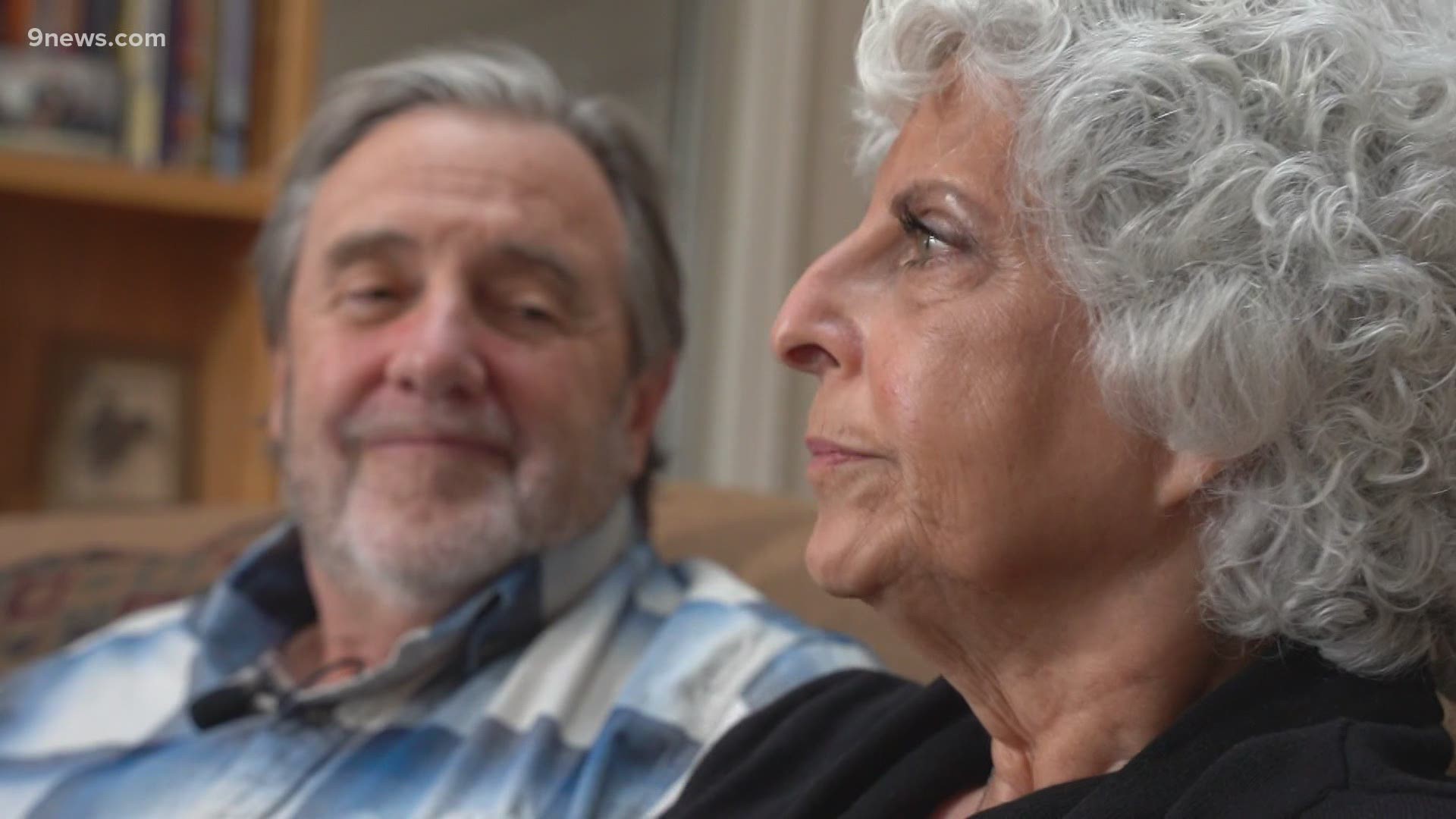BOULDER, Colo. — One year and one day ago, a couple from Boulder came home after a trip to Patagonia, Argentina.
“Ironically, we were in what is often referred to as the "end of the world" and we had little understanding at that time; in some respects, we were going to return to the end of the world as we knew it,” said Barbara Gould.
Barbara will never forget that day, “It feels like a death and I never died. But, that person is gone, and this is a new person.”
In the past year, Barbara lost her hair, lost the ability to speak, walk, and breathe independently. When she arrived at Boulder Community Hospital (BCH), the staff was learning about COVID-19.
Respiratory therapist Trish Huso remembers those early days. “Scary. We were all scared, you know COVID was so new. We were protecting ourselves, but we didn’t know to protect ourselves or how to treat patients.”
Barbara spent a short amount of time at BCH before she was airlifted to UCHealth in Aurora. Separated from her family, she has little memory of those dark days on a ventilator and unconscious.
Only now does she realize some of the long-term impacts. “There’s a lot that goes on in an ICU to your body that you might not consciously be aware of, but certainly your nervous system is aware of, so like any other trauma, there are lingering effects.”
Last spring, Barbara was considered one of the sickest COVID patients in the state.
After consulting with her family, doctors agreed to use the ECMO machine to give her lungs and heart a chance to heal. It was the first time the machine had been used on someone who had been on a ventilator for 15 days.
Remarkably, Barbara recovered slowly and after more than 90 days in the hospital and rehabilitation, she came home.
RELATED: 'Mom is not going to be a statistic': Woman survives COVID-19 after 65 days on a ventilator
One year later, she is back at BCH, finishing her pulmonary rehabilitation. Huso is thrilled with her progress. “I’m not a parent, but it’s almost like that; they’re ready to move out and fly the nest. This is the new and improved Barbara.”
There are still a few obstacles for Barbara. She hasn’t fully regained her voice and she has liver damage, which is progressive. The ECMO machine probably led to liver problems, but there are no regrets. “I’m so grateful to be here and so grateful to be alive.”
Now fully vaccinated, Barbara and her husband Allen are planning a road trip to Nashville to visit their son and daughter-in-law for Passover.
“I missed Passover last year and it’s a holiday that means a great deal to me,” she said.
In September, Barbara and Allen will become grandparents. This is the beginning of a new life for Barbara and her family – a life after COVID.
SUGGESTED VIDEOS: COVID-19 Coronavirus

